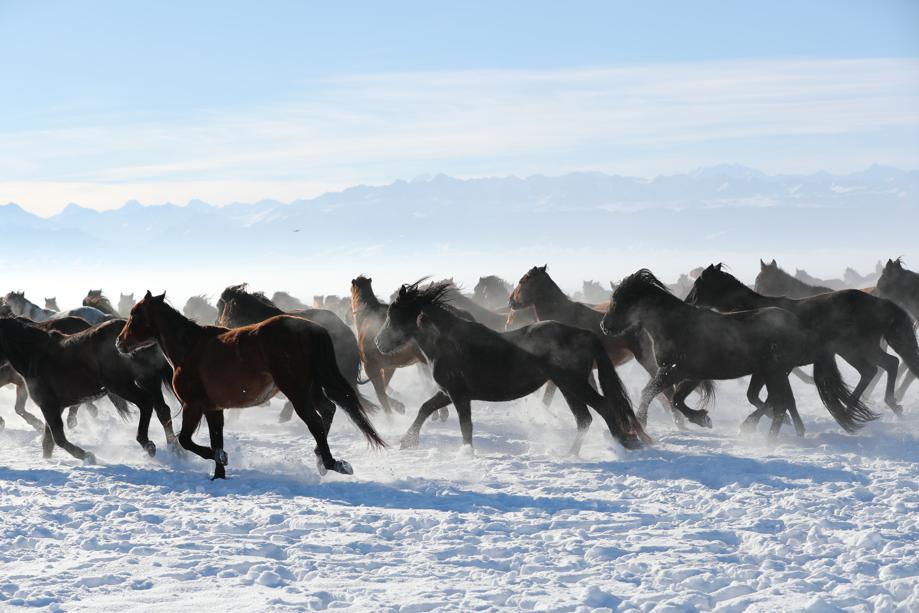
Horses gallop on snow-covered grasslands in Zhaosu, Xinjiang Uygur autonomous region.[Photo by Wang Jing/China Daily]
Manes flowing in the wind, breath steaming in the air, the heavenly horses gallop unleashed across the vast expanse of snow-covered grasslands, their hooves pounding against the earth, producing a symphony where power and grace intertwine.
The exhibit of elegant, untamed raw power can be seen in Zhaosu, “land of heavenly horses”, in the Xinjiang Uygur autonomous region. Heavenly horses refer to Ili horses, whose ancestors were the Wusun horses introduced into China in the Han Dynasty (206 BC-AD 24).
Since ancient times, Zhaosu has been known for its abundance of heavenly horses.
Now it is the cultivation base of China’s ceremonial horses with more than 100,000 creatures.
Tianma Tourism and Cultural Park in Zhaosu promotes the horse culture, offering tourists displays of world famous horses and riding experience.
Performances of horses galloping across the river in summer or the snow-covered grasslands in winter are among the most fascinating attractions topping travelers’ wish lists.
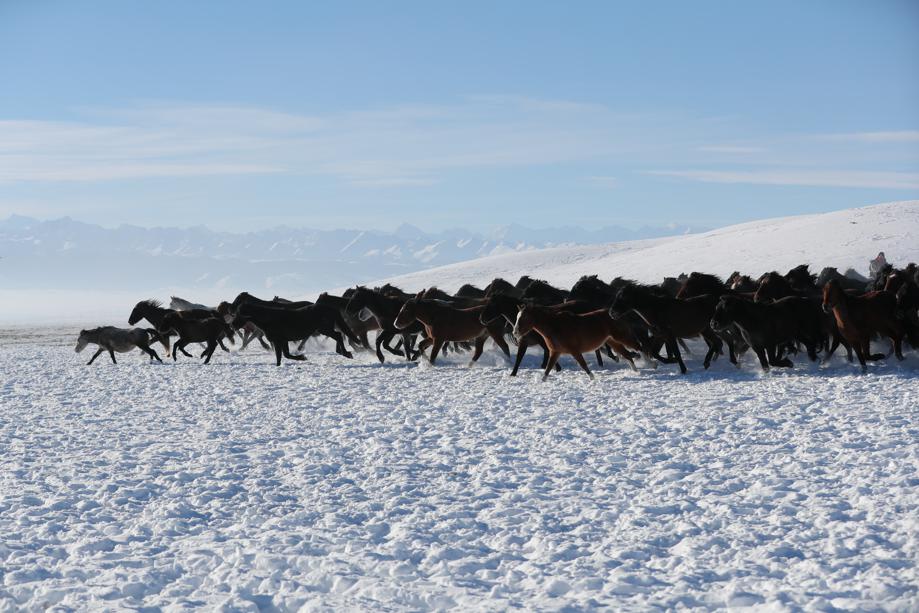
Horses gallop on snow-covered grasslands in Zhaosu, Xinjiang Uygur autonomous region.[Photo by Wang Jing/China Daily]
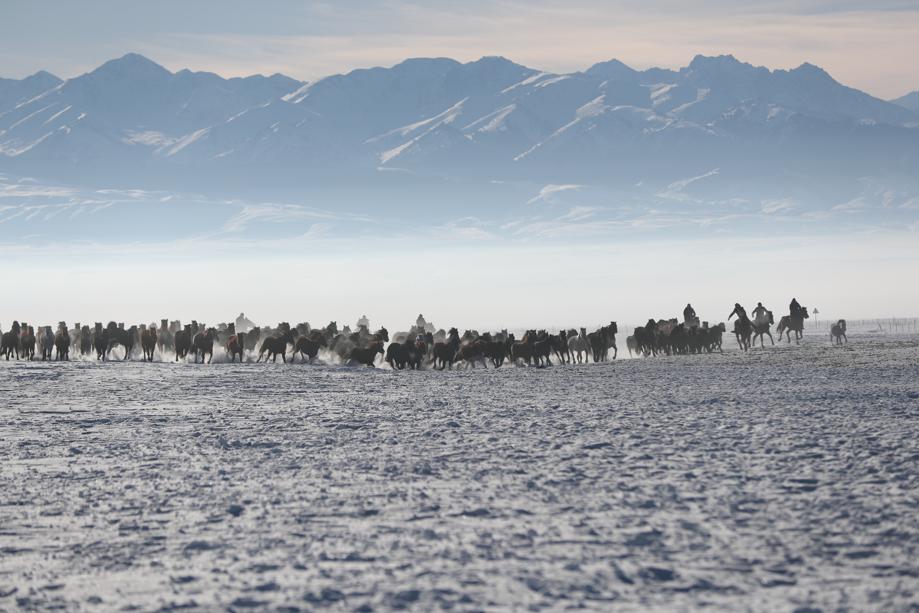
Horses gallop on snow-covered grasslands in Zhaosu, Xinjiang Uygur autonomous region.[Photo by Wang Jing/China Daily]
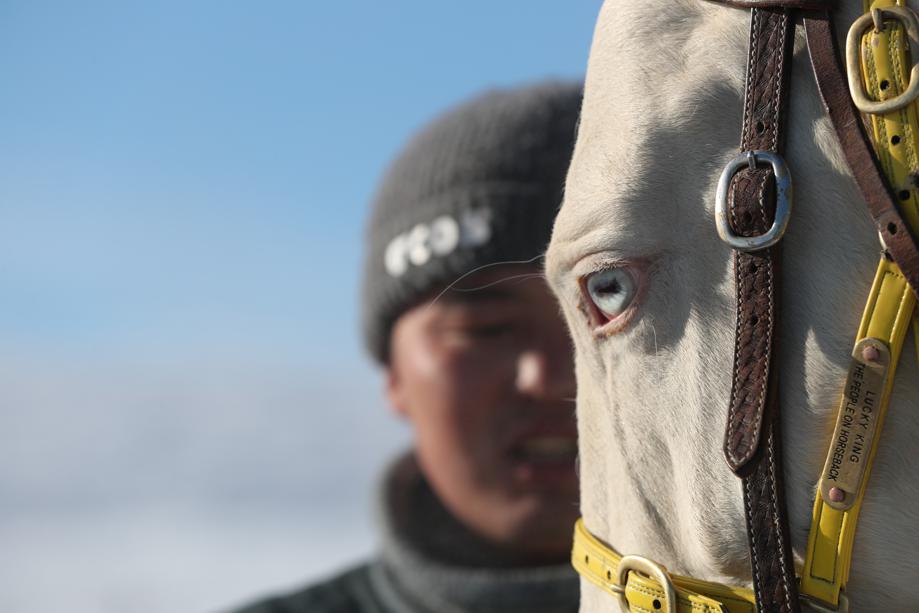
A Ferghana horse from Tianma Tourism and Cultural Park in Zhaosu, Xinjiang Uygur autonomous region.[Photo by Wang Jing/China Daily]
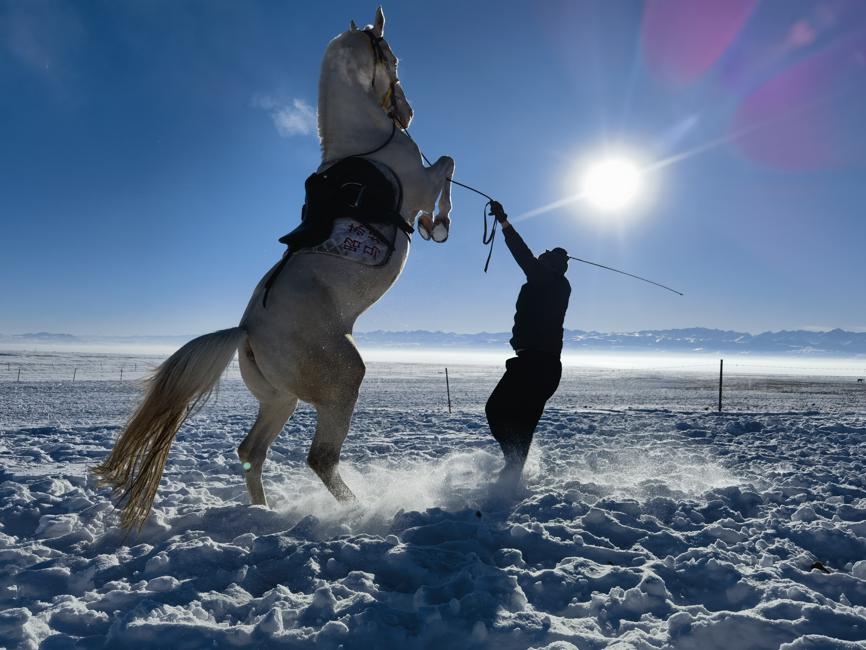
The Ferghana horse performs walking on hind legs.[Photo by Wang Jing/China Daily]









